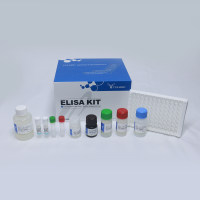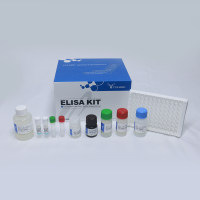Use of Activated Natural Killer Cells for Tumor Immunotherapy in Mouse and Human
互联网
互联网
相关产品推荐

促销中大鼠肿瘤坏死因子α(TNF-α)/Rat TNF-α/tumor necrosis factor (TNF superfamily,member 2)/Tnf;Tnfa;Tnfsf2;Tumor necrosis factor;Cachectin;TNF-alpha;Tumor necrosis factor ligand superfamily member 2;TNF-a) [Cleaved into: Tumor necrosis factor;membrane for/TNF/ELISA试剂盒
¥3420¥3800

促销中小鼠白介素1β (IL-1β)酶联免疫试剂盒Mouse Interleukin 1β,IL-1β ELISA Kit
¥2880¥3200

Recombinant-Mouse-Killer-cell-lectin-like-receptor-subfamily-G-member-1Klrg1Killer cell lectin-like receptor subfamily G member 1 Alternative name(s): Mast cell function-associated antigen 2F1
¥10458

Recombinant-Bovine-Protein-NKG7NKG7Protein NKG7 Alternative name(s): Natural killer cell protein 7
¥10248

IL-2重组蛋白|Recombinant Human IL2 Protein
¥1080
相关问答

